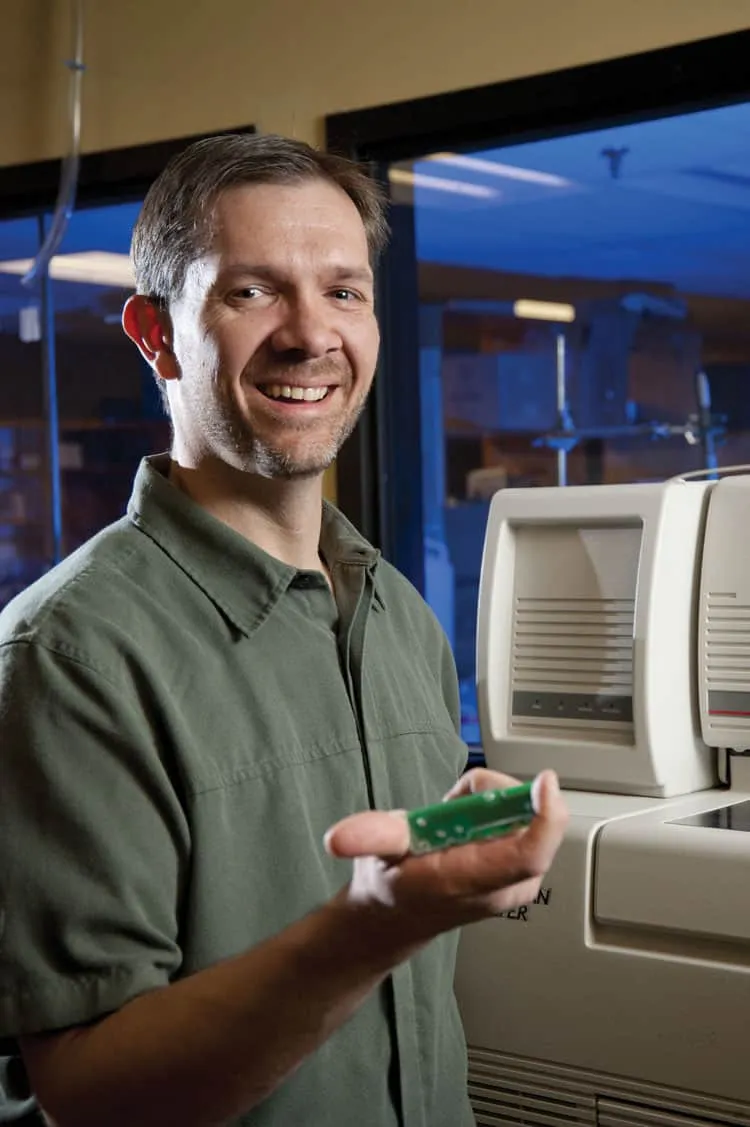Lab-on-a-chip tech promises revolution

FORT COLLINS – CSU Chemistry Professor Chuck Henry’s Advanced MicroLabs is working to bring cutting-edge monitoring and measuring technology to an array of activities including detecting toxins from munitions manufacturing facilities that have polluted water sources nationwide.
Known as lab-on-a-chip, Advanced MicroLabs’ technology is less than half the size of a business card and measures trace levels of compounds. Based in CSU’s Research Innovation Center, the company employs three full-time and five part-time workers.
In general, water sources are measured for toxins once every month or so. A sample is collected and sent to a lab for analysis, which can take weeks.…
THIS ARTICLE IS FOR SUBSCRIBERS ONLY
Continue reading for less than $3 per week!
Get a month of award-winning local business news, trends and insights
Access award-winning content today!
